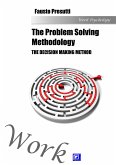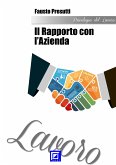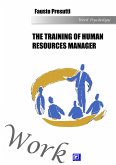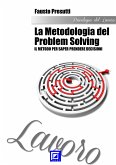Communication is a fundamental element in the human’s activity. Every system or organization is regulated through communicative processes.
The text presents a training course on communication skills which therefore appears to be fundamental, and is aimed at enhancing the ability to knowing how to communicate and manage the discussion.
At the beginning, text will explain what the communication is, what kind of skills is important in the process of communication, and what verbal and non-verbal communication is.
There are also introduced objectives and purposes of the communication. In the following chapters the techniques of public communication are dealt with, addressing concepts such as defensive communication, empathic communication, listening methods (active/passive), communication barriers, communication techniques to solve problematic situations and effective communication in the group.
There are also described the main theories on communication, such as:
* the social psychology of the Frankfurt school and the sociometric techniques of Jacob Levi Moreno,
* the humanist psychology of Abraham Maslow and Carl Rogers and the techniques of Thomas Gordon,
* the psychology of relations, Palo Alto school and the "pragmatics of communication" of Paul Watzlawick, Janet Beavin and Don Jackson,
* the interactionist psychology of the Chicago school, the model of social interaction of Robert Freed Bales, and that of Philip Jackson, Henriette Lahaderne and Melvin Silberman.
To have a complete view of the model and tools relating to Human Resources in Personnel Management and Selection; please refer to the reading of the other publications of the series (http://eshop.ispef.info): “ The Relationship with Company ", "Personnel Selection. Analysis of cases", "The Job Search", "The Selection Tools: the Conversation and the Interview", "The Training of Human Resources Manager", "Human Perspective’s Assessment”. “Problem Solving. The Method of Learning to Learn”, “The Motivation at Work”, “Knowing how to Communicate. Theories, Models & Techniques of Communication Sciences”, “Recruiter’s Methodologies. Observation-Listening And Profile Definition”.
For a more profound and extensive understanding of the method and processes of Problem Solving, even in the fields of Education and Psychology, it is useful to read the books:
- “Educational Methodologies "," Educational Communication ","Formative Evaluation” published in this series of Education of the Institute I.S.P.E.F;
- “The Mental Universe” and “ The Map of Mental Processes” published in this series of Psychology of the Institute I.S.P.E.F.
The text presents a training course on communication skills which therefore appears to be fundamental, and is aimed at enhancing the ability to knowing how to communicate and manage the discussion.
At the beginning, text will explain what the communication is, what kind of skills is important in the process of communication, and what verbal and non-verbal communication is.
There are also introduced objectives and purposes of the communication. In the following chapters the techniques of public communication are dealt with, addressing concepts such as defensive communication, empathic communication, listening methods (active/passive), communication barriers, communication techniques to solve problematic situations and effective communication in the group.
There are also described the main theories on communication, such as:
* the social psychology of the Frankfurt school and the sociometric techniques of Jacob Levi Moreno,
* the humanist psychology of Abraham Maslow and Carl Rogers and the techniques of Thomas Gordon,
* the psychology of relations, Palo Alto school and the "pragmatics of communication" of Paul Watzlawick, Janet Beavin and Don Jackson,
* the interactionist psychology of the Chicago school, the model of social interaction of Robert Freed Bales, and that of Philip Jackson, Henriette Lahaderne and Melvin Silberman.
To have a complete view of the model and tools relating to Human Resources in Personnel Management and Selection; please refer to the reading of the other publications of the series (http://eshop.ispef.info): “ The Relationship with Company ", "Personnel Selection. Analysis of cases", "The Job Search", "The Selection Tools: the Conversation and the Interview", "The Training of Human Resources Manager", "Human Perspective’s Assessment”. “Problem Solving. The Method of Learning to Learn”, “The Motivation at Work”, “Knowing how to Communicate. Theories, Models & Techniques of Communication Sciences”, “Recruiter’s Methodologies. Observation-Listening And Profile Definition”.
For a more profound and extensive understanding of the method and processes of Problem Solving, even in the fields of Education and Psychology, it is useful to read the books:
- “Educational Methodologies "," Educational Communication ","Formative Evaluation” published in this series of Education of the Institute I.S.P.E.F;
- “The Mental Universe” and “ The Map of Mental Processes” published in this series of Psychology of the Institute I.S.P.E.F.









